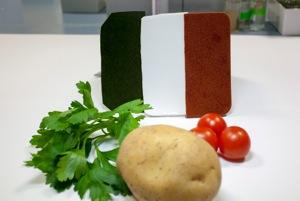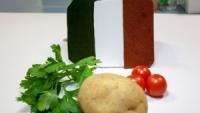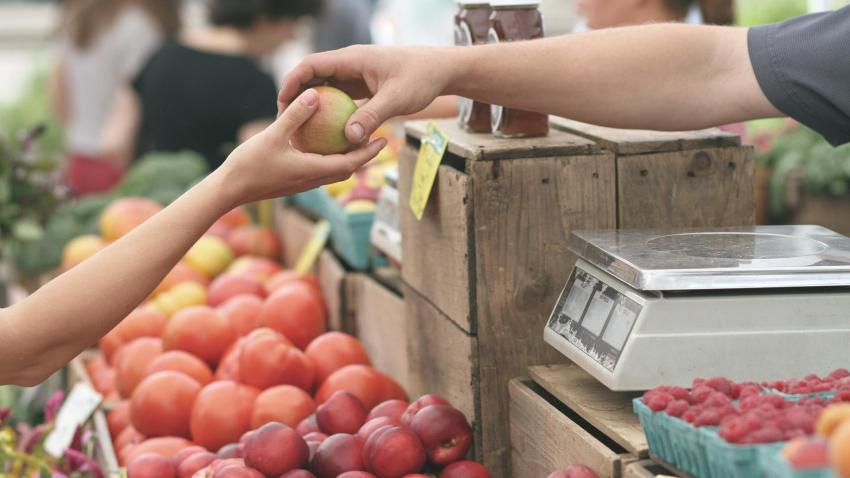You are here
Back to topPresented in Berlin, the Bioplastic Packaging Made from Leftover Fruit and Vegetables

The Smart Materials team at the Istituto Italiano di Tecnologia (IIT) led by Athanassia Athanassiou, in collaboration with Società Gestione Mercato of Genoa (SGM) and Ascom Confcommercio presented a project regarding circular economy in Berlin, which will allow for the converting of unsold produce from fruit and vegetable markets into 100% biodegradable plastic for the creation of ecologically sustainable packaging for fruit and vegetables.
During the presentation event entitled “The new life of fruits and vegetables – bioplastic packaging and circular economy” in the ITALY area, an IIT researcher, Giovanni Perotto, presented the first experimental product created with technology patented by IIT in collaboration with the Genoa fruit and vegetable market and Ascom: bioplastic packaging to replace the traditional blister tray in boxes of fruit and vegetables in order to protect the produce. This type of packaging is made entirely from unsold artichokes from the Genoa fruit and vegetable market.
Pollution caused by plastic is now at the centre of attention of many world governments. Every year in Europe, 25.8 million tons of plastic waste is produced, 31% of which ends up in dumps. As far as plastic packaging is concerned, it is calculated that 95% of its value – between 70 and 105 billion euros per year – is lost due to its very short life cycle. These are figures recently issued by the European Commission in the report “A European Strategy for Plastics in a Circular Economy”, which underlines the importance of new strategies for the production of ecologically sustainable bioplastics.
In this context, the researchers have developed various manufacturing processes which allow for the complete conversion of leftover fruit and vegetables into bioplastics. The various processes range from the conversion of the vegetable matter into bioplastic with an aqueous process, to the preparation of thermoplastic and thermoformable composites (all from sustainable sources). This kind of technology manages to simultaneously prevent the disposal of vegetable leftovers, saving on charges, recover raw material from organic waste and reduce the use of non-biodegradable plastic and plastic made from fossil sources.
These prototypes can be seen as part of a circular economy project, in which leftovers from the fruit and vegetable market are transformed into a product used directly in the place of origin, and which is easily biodegraded at the end of its life cycle. The products made can in fact be re-used by the same wholesale market operators who are associated with Fedagromercati Ascom Confcommercio and are involved in the pilot project.
This project forms part of the activity carried out by the IIT research team on smart materials. For some time, the IIT laboratories have been developing 100% green solutions for converting by-products of food production – or, as in this case, from unsold products – into new plastic materials which are both compostable and sustainable for our environment.
In order to transform this project – which received the immediate support of the Municipality of Genoa and the Genoa Chamber of Commerce – into a tangible reality, Fruit Logistica saw the creation of contacts with various potential investors to begin a dedicated start-up project, involving a wide-ranging network of structures which allows for the implementation of an up-scaling of production and the commercialisation of products.
Image Source: Istituto Italiano di Tecnologia













Add new comment